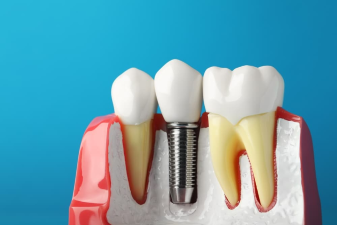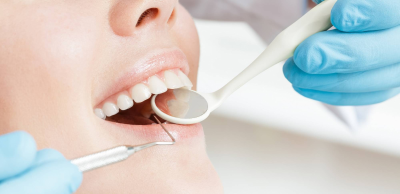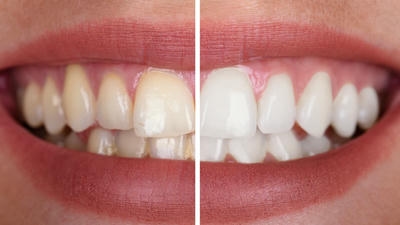Bad breath, medically known as halitosis, is a common concern that can affect anyone at any age. While occasional bad breath is normal, persistent bad breath can be embarrassing and may indicate an underlying health issue. Understanding the causes of bad breath and how to address them can help you maintain fresh breath and improve your overall oral health.

Understanding Bad Breath
What Is Bad Breath?
Bad breath is an unpleasant odor emanating from the mouth. It can result from various factors, including poor oral hygiene, certain foods, or health conditions. The odor may come from bacteria in the mouth that break down food particles, or it may originate from the throat, nose, or gastrointestinal tract.
The Importance of Fresh Breath
Fresh breath is often associated with good personal hygiene and health. Persistent bad breath can affect self-esteem and social interactions. It is essential to identify the underlying cause of bad breath and take appropriate measures to address it.
Common Causes of Bad Breath
1. Poor Oral Hygiene
One of the most prevalent causes of bad breath is inadequate oral hygiene. When plaque, food particles, and bacteria accumulate in the mouth, they can produce foul odors. Poor oral hygiene practices include:
- Infrequent brushing and flossing
- Neglecting to clean the tongue
- Skipping regular dental check-ups
Solution: To combat bad breath caused by poor oral hygiene, establish a comprehensive oral care routine that includes:
- Brushing: Brush your teeth at least twice daily with fluoride toothpaste. Ensure you clean all surfaces of the teeth, including the inner, outer, and chewing surfaces.
- Flossing: Floss daily to remove plaque and food particles from between teeth, areas that brushing may miss.
- Tongue Cleaning: Use a tongue scraper or brush to clean your tongue, as bacteria can accumulate on its surface.
2. Dry Mouth (Xerostomia)
Dry mouth occurs when there is insufficient saliva production. Saliva plays a vital role in washing away food particles and neutralizing acids produced by bacteria. Without adequate saliva, bacteria can thrive, leading to bad breath.
Causes of Dry Mouth:
- Dehydration
- Certain medications
- Medical conditions such as Sjögren's syndrome
Solution: To alleviate dry mouth and combat bad breath, consider the following tips:
- Stay Hydrated: Drink plenty of water throughout the day to keep your mouth moist.
- Chew Sugar-Free Gum: Chewing gum stimulates saliva production and can help keep your mouth moist.
- Use Saliva Substitutes: Over-the-counter saliva substitutes or mouth moisteners can help relieve dry mouth symptoms.
3. Certain Foods
Certain foods can cause temporary bad breath due to the breakdown of food particles in the mouth or their absorption into the bloodstream. Common culprits include:
- Garlic
- Onions
- Spices (such as curry and cumin)
- Certain cheeses
Solution: While it may be challenging to avoid these foods altogether, there are ways to combat their effects:
- Beverages: Drink water or green tea, which may help neutralize odors.
- Oral Hygiene Post-Meal: Brush your teeth or rinse your mouth after eating to remove food particles and reduce odors.
4. Tobacco Products
Tobacco use contributes to bad breath in several ways. It dries out the mouth, leaves a persistent odor, and increases the risk of gum disease, which can also cause bad breath.
Solution: The most effective way to combat tobacco-related bad breath is to quit using tobacco products. Additionally:
- Maintain good oral hygiene practices if you continue tobacco use.
- Use mouthwash or sugar-free gum to mask odors temporarily.
5. Gum Disease
Gum disease, or periodontal disease, is an infection of the gums that can lead to bad breath. It occurs when plaque and tartar build up on the teeth, causing inflammation and infection. Symptoms of gum disease include:
- Swollen or bleeding gums
- Persistent bad breath
- Receding gums
Solution: If you suspect gum disease is the cause of your bad breath, consider the following:
- See Your Dentist: Schedule a visit to your dentist for an evaluation and professional cleaning. Treatment may involve deep cleaning or other periodontal therapies.
- Improve Oral Hygiene: Brush and floss regularly to prevent gum disease from progressing.

6. Dental Appliances
Dental appliances such as dentures, braces, or retainers can harbor bacteria, food particles, and plaque if not cleaned properly.
Solution: To combat bad breath caused by dental appliances:
- Clean Regularly: Follow your dentist's recommendations for cleaning dentures, braces, and retainers. Use appropriate cleaning solutions and methods to ensure they are free of plaque and bacteria.
- Remove Appliances When Appropriate: If feasible, remove appliances during meals to minimize food debris accumulation.
7. Health Conditions
Certain medical conditions can contribute to bad breath. These may include:
- Respiratory Infections: Conditions such as sinus infections, colds, and bronchitis can produce foul-smelling breath due to nasal drainage.
- Gastroesophageal Reflux Disease (GERD): Acid reflux can cause sour or acidic breath as stomach acids backtrack into the esophagus.
- Diabetes: Uncontrolled diabetes can lead to a condition known as diabetic ketoacidosis, which produces a fruity odor in the breath.
- Kidney Disease: Kidney dysfunction can lead to a foul odor in the breath due to the accumulation of waste products.
- Liver Disease: Liver problems can result in breath that has a musty or fishy odor.
Solution: Treating the underlying health condition is crucial for managing bad breath associated with medical issues. Consult with your healthcare provider for appropriate diagnosis and treatment.
8. Hormonal Changes
Hormonal fluctuations, particularly in women, can influence oral health and contribute to bad breath. Conditions such as pregnancy can lead to increased gum sensitivity and changes in saliva production.
Solution: Women experiencing hormonal changes should focus on maintaining good oral hygiene and may benefit from regular dental check-ups during these times.
9. Certain Medications
Numerous medications can contribute to dry mouth or alter the natural flora of the mouth, leading to bad breath. Common medications that may cause dry mouth include:
- Antidepressants
- Antihistamines
- Diuretics
- Pain medications
Solution: If you suspect your medication is causing bad breath or dry mouth, consult your healthcare provider. They may recommend alternative treatments or suggest strategies to manage dry mouth.
Effective Remedies for Bad Breath
1. Maintain Proper Oral Hygiene
Consistent and effective oral hygiene is the foundation for combating bad breath. Adopt the following practices:
- Brush at least twice a day using fluoride toothpaste.
- Floss daily to remove plaque and food particles.
- Clean your tongue daily to eliminate bacteria buildup.
2. Stay Hydrated
Drink water throughout the day to keep your mouth moist and help wash away food particles and bacteria.
3. Use Mouthwash
Select an antimicrobial mouthwash that targets the bacteria responsible for bad breath. Look for mouthwashes containing ingredients like chlorhexidine or cetylpyridinium chloride, which can help reduce oral bacteria.
4. Chew Sugar-Free Gum or Mints
Chewing sugar-free gum or mints can help stimulate saliva production, providing a temporary solution for bad breath and promoting oral health simultaneously.
5. Regular Dental Check-ups
Schedule regular dental visits every six months for professional cleanings and check-ups. Your dentist can identify potential oral health issues early and provide guidance for maintaining fresh breath.
6. Healthy Diet
Maintain a balanced diet rich in fruits, vegetables, and whole grains. Crunchy fruits and vegetables, such as apples and carrots, can help clean teeth and promote saliva production.
7. Quit Smoking
If you use tobacco products, seek support to quit. Quitting will significantly improve your overall health, including your oral health and breath freshness.
Prevention Tips for Long-Lasting Fresh Breath
1. Brush and Floss Regularly
Commit to a daily routine of brushing and flossing to minimize plaque buildup and eliminate food particles.
2. Clean Your Tongue
Use a tongue scraper or brush your tongue with your toothbrush to help remove bacteria and prevent bad breath.
3. Choose Breath-Friendly Snacks
Select snacks that help fight bad breath, such as raw fruits and vegetables. Avoid sugary snacks that can lead to plaque buildup.
4. Limit Alcohol and Caffeine
Reduce consumption of alcohol and caffeinated beverages, which can contribute to dry mouth and exacerbate bad breath.
5. Get Sufficient Sleep
Adequate sleep is essential for overall health and can help regulate stress levels, which in turn can reduce activities that lead to bad breath.
Conclusion
Bad breath is a common issue that can result from various causes, including poor oral hygiene, dry mouth, certain foods, and underlying health conditions. By understanding the root causes of your bad breath and implementing effective solutions, you can maintain fresh breath and improve your overall oral health.
Adopt a comprehensive oral hygiene routine, stay hydrated, and seek dental care regularly to ensure fresh breath for the long term. Remember that persistent bad breath may indicate a more serious underlying health issue that warrants medical attention. By addressing bad breath head-on, you can boost your confidence and enjoy healthier interactions with those around you.



